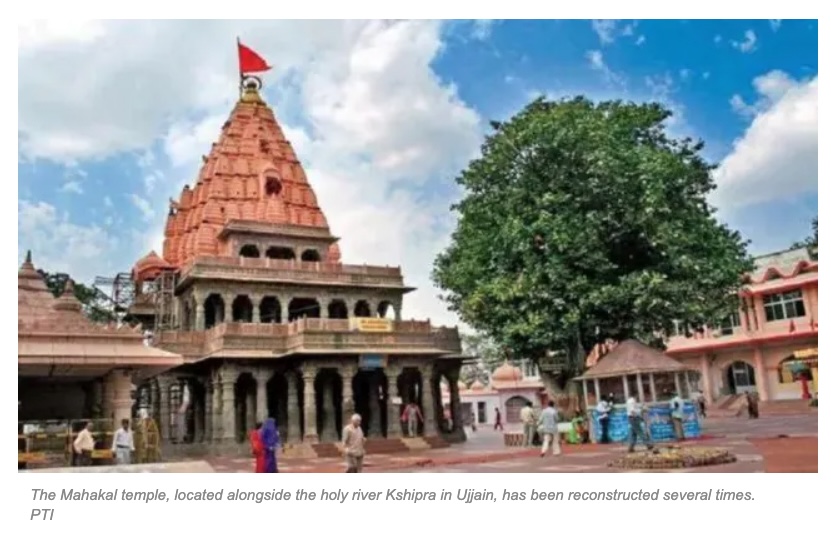NEW MEXICO, USA, October 13, 2022 (firstpost.com, by David Frawley): India has historically been a great land of magnificent temples. Temples were not only important sites for religious worship but also served as centers of learning, art, community gatherings and festivals. Temples held great wealth and were the pride of the communities in which they were built. Such temples became targets for foreign invasion or destruction. Conquering temples could be a source of wealth, social and political control. Yet when Hindus regained power, they restored conquered temples and renewed their own traditions.
After the Marathas defeated the Mughals and became the dominant power in India in the eighteenth century, they began an active campaign to take back important temples, or to restore those that had been damaged or neglected. Other Hindu communities did the same. The British had no campaign to destroy or expropriate temples, but did not support efforts to restore them either. The result was when India achieved Independence in 1947 many important and famous ancient temples had not been reclaimed or restored though there was a strong sentiment to do so. There was an expectation that Independent India would continue the process that the Marathas and others had started.
Yet, though India was divided into a Hindu-majority India and a Muslim-majority Pakistan, the Nehru government, much like the British, did not allow Hindus to reclaim their sacred sites or offer government support in restoring them. Not much support was given to Jains, Sikhs or Buddhists or other dharmic traditions either. This means that the policy of restricting Hindus from reclaiming or renovating their sacred sites continued unbroken through the Mughal, British and Nehruvian periods. Only Somnath managed to escape the Nehruvian restriction, but that was owing to Sardar Vallabhbhai Patel, not Jawaharlal Nehru, who opposed it. Pakistan meanwhile was happy and proud to fund new mosques, renovate the old, and restrict or destroy existing Hindu temples.
The question arises: Can India be India without honoring its civilizational heritage, including its magnificent temples?
Click link below for the rest of this thoughtful article:
https://www.firstpost.com/india/why-restoration-of-timeless-temples-is-important-for-new-india-11439481.html
A daily summary of world news for Hindus and non-Hindus alike

